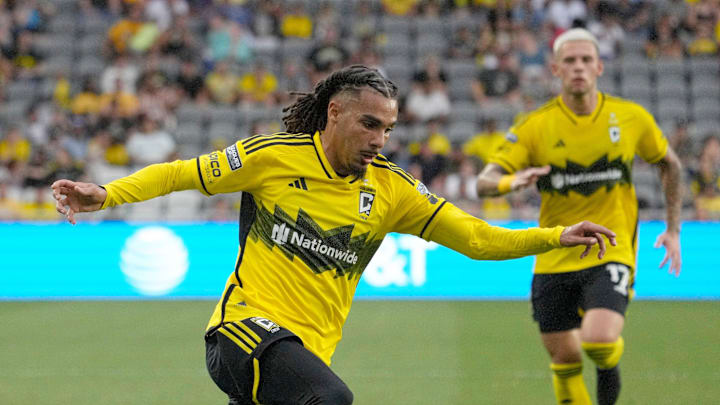Sports have this uncanny ability to stir emotions – they make us scream, cheer, gasp for air, and sometimes, even laugh at our own misfortunes. Just ask Wilfried Nancy, the head coach of Columbus Crew, who found himself doing just that in the team’s latest clash. It’s hard to deny that Columbus is going through a rather peculiar phase right now. They’ve developed this weird habit of conceding ridiculously early goals, sending their fans on a rollercoaster ride of despair and ecstasy. But here’s the real question: how much longer can their luck hold out?
In their recent game against New York City FC, they practically gift-wrapped a goal for the opponent, allowing Alonso Martínez to score the fastest goal in Leagues Cup history – 12 seconds! Yeah, blink and you missed it. The ball barely rolled before it was nestled into the back of the Crew’s net. Columbus started the game literally tripping over their own feet. Honestly, it felt like a cruel joke. But then came the comeback. With almost zen-like patience, the Crew found a way to regroup, tie things up, and hang on long enough to win in penalties.
Follow MLS Multiplex on X (Twitter).
Now, let’s be real: soccer doesn’t smile on the bold every day. Columbus is testing that theory to its absolute limits. Picture this – every game is like a round of Russian roulette. The team starts off shaky, gives their opponents a head start, and then digs deep to climb out of the hole they’ve buried themselves in. It happened against Inter Miami, New England, and of course, NYCFC. The irony? They keep winning. So, is this just dumb luck, or are we talking skill? Probably a bit of both. But one thing’s for sure: Wilfried Nancy’s approach to coaching is anything but conventional.
Nancy is a bold tactician. His team plays with calculated risks, yet somehow, Columbus always manages to walk the tightrope at the last second and put on a show for their fans. Maybe that’s what makes the Crew so thrilling to watch. But for how long can this strategy really hold up? Even the coach seems aware of the danger. After games, Nancy appears calm, almost amused by his team’s blunders, as if these small disasters are all part of the master plan. The truth is, his philosophy requires a level of confidence and precision that’s not always easy to sustain.
Cucho Hernández’s goal, which tied the game against NYCFC, was a perfect example of how the Crew walks the line between chaos and control. After conceding in such a ridiculous way, the team suddenly played with a ferocity that few opponents can match. And that’s Nancy’s trick. He knows that when his squad is playing on the edge – pressing, attacking, creating chances even when they’re on the ropes – they’re nearly unbeatable. The problem is, this approach comes with a price. The constant risk of conceding, especially in the opening minutes, means that the Crew often puts themselves in positions that, sooner or later, will be impossible to claw back from.
Still, it’s tough to criticize a team that keeps winning. Since May, the Crew has failed to score in only one of their 18 matches. What they may lack in defensive solidity, they more than make up for with an uncanny ability to find the back of the net, even when the pressure’s on. But is this a sustainable strategy in the long run? And more importantly, how will they handle things when luck isn’t on their side?
Their match against NYCFC was a prime example of the highs and lows of this approach. New York played smart, cutting off the spaces Columbus loves to exploit and holding onto the ball just enough to keep the pressure on. It was a tense game with chances on both sides, and it could’ve easily gone either way. In the end, Columbus had to rely on their penalty-taking skills to advance – which, let’s be honest, isn’t the most reliable way to guarantee a win. Penalties are a lottery.
Nancy, staying true to his philosophy, doesn’t interfere with who takes the penalties. He leaves that choice to the players, saying it’s more of a mental exercise than a technical one. But how long can Columbus Crew keep dodging the traps they set for themselves? At some point, the balls that are going in will stop finding the net, and the mistakes they’re making will start to cost them. They’ve got more than enough talent to compete with the best, but they’ll need to start games stronger if they want to secure their spot at the top.
